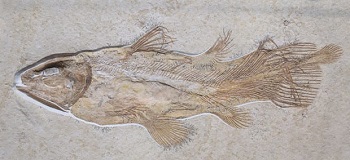シーラカンスは古生代(3億8000万年前)に出
現し、中生代に大繁栄を迎えました。
65000万年前地球に巨大隕石が衝突し、生物
の大量絶滅を境に恐竜と共に全て絶滅したと
考えられていた。

シーラカンスの化石は世界中で発見され、
化石種なのに26種にも分類されますから
長い間繁栄したことがわかります。
化石種では、現存する種と体高や体型が
異なり、復元したら全長3mの種もいます。

1938年に地元の漁師が持ってきた珍しい魚
が、古代の姿そのままで生きているシーラカ
ンスであることに魚類学者は気がづき。
その後次々に見つかりました。
水深200〜700メートルのところで暮らす
深海魚なので大量絶滅を生き残れたのかも。

1997年にはインドネシアの魚市場で、
別の現生種も発見された。
2種類のシーラカンスの生態的・形態的な
差異はほとんどなく、外見的に鱗表面の
色彩が異なる程度です。

Sacabambaspis Healing ancient fish サカバンバスビス
It has become a hot topic as a fish with a pitiful appearance with its mouth open and a blank expression on its face.







コメント